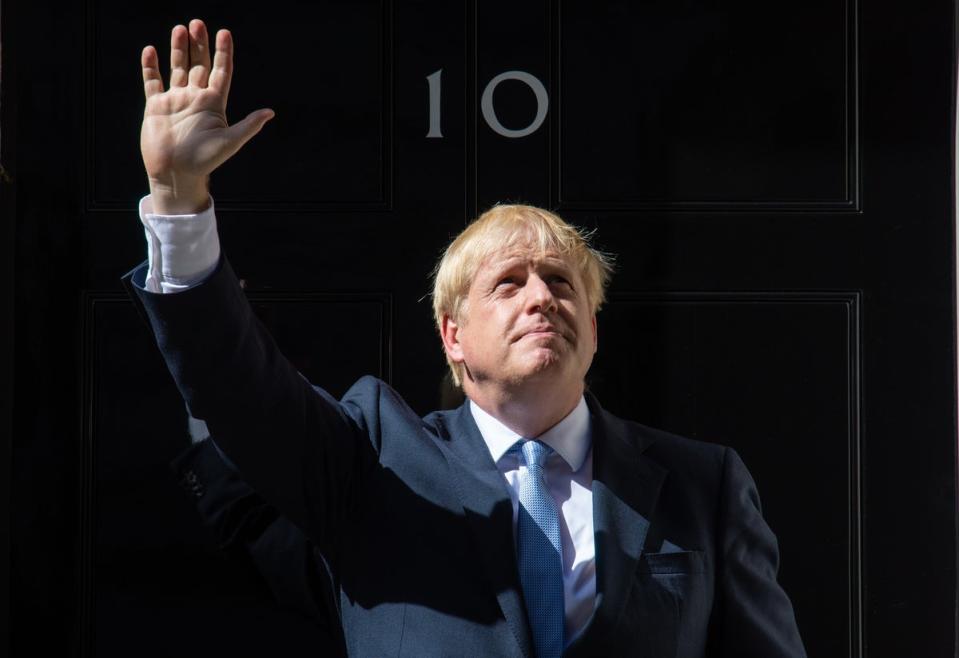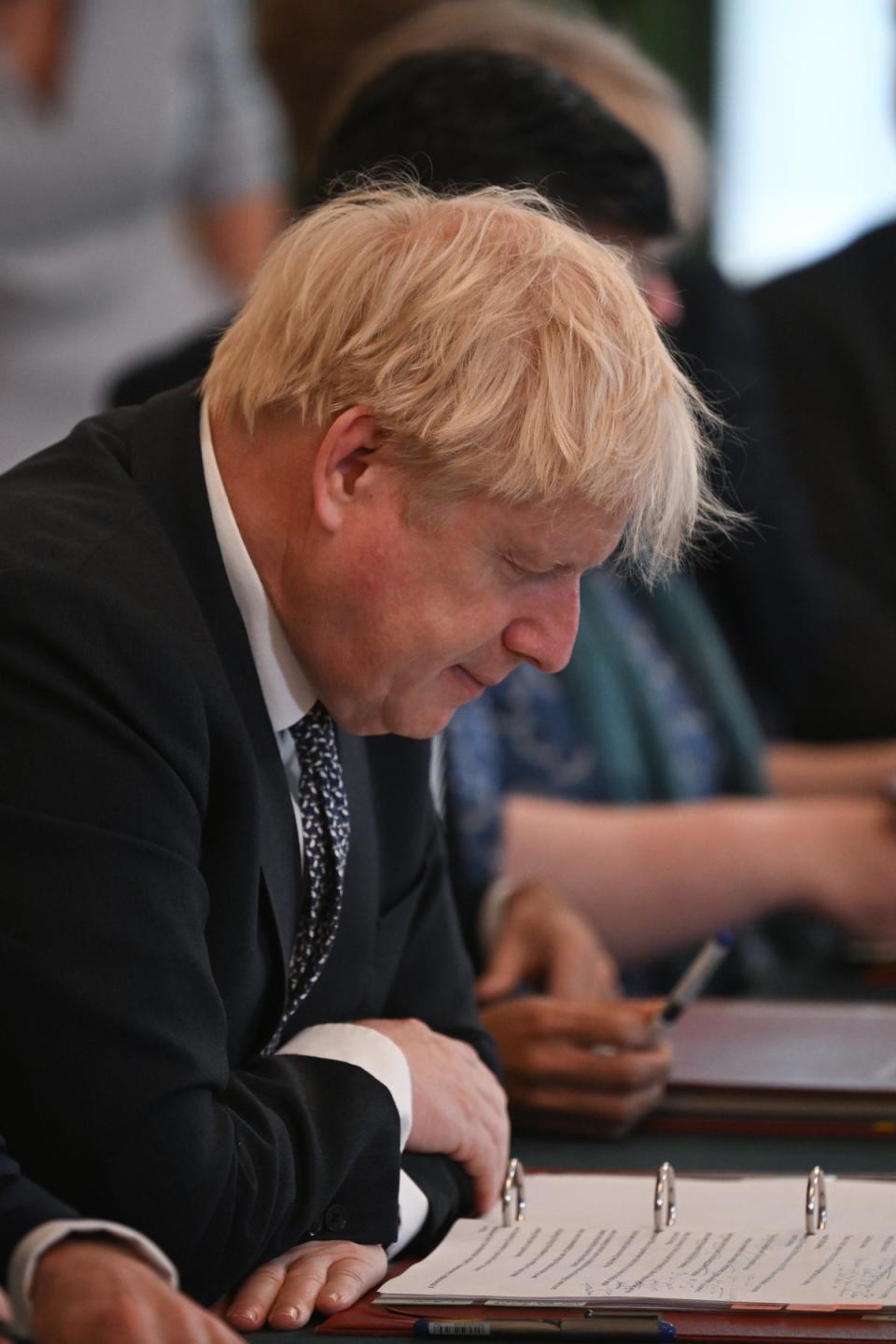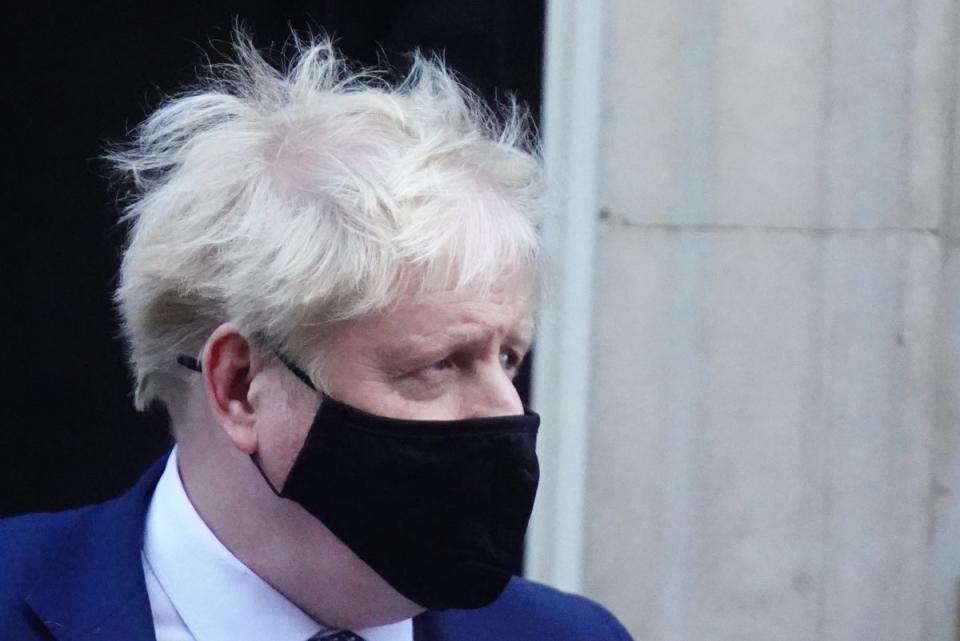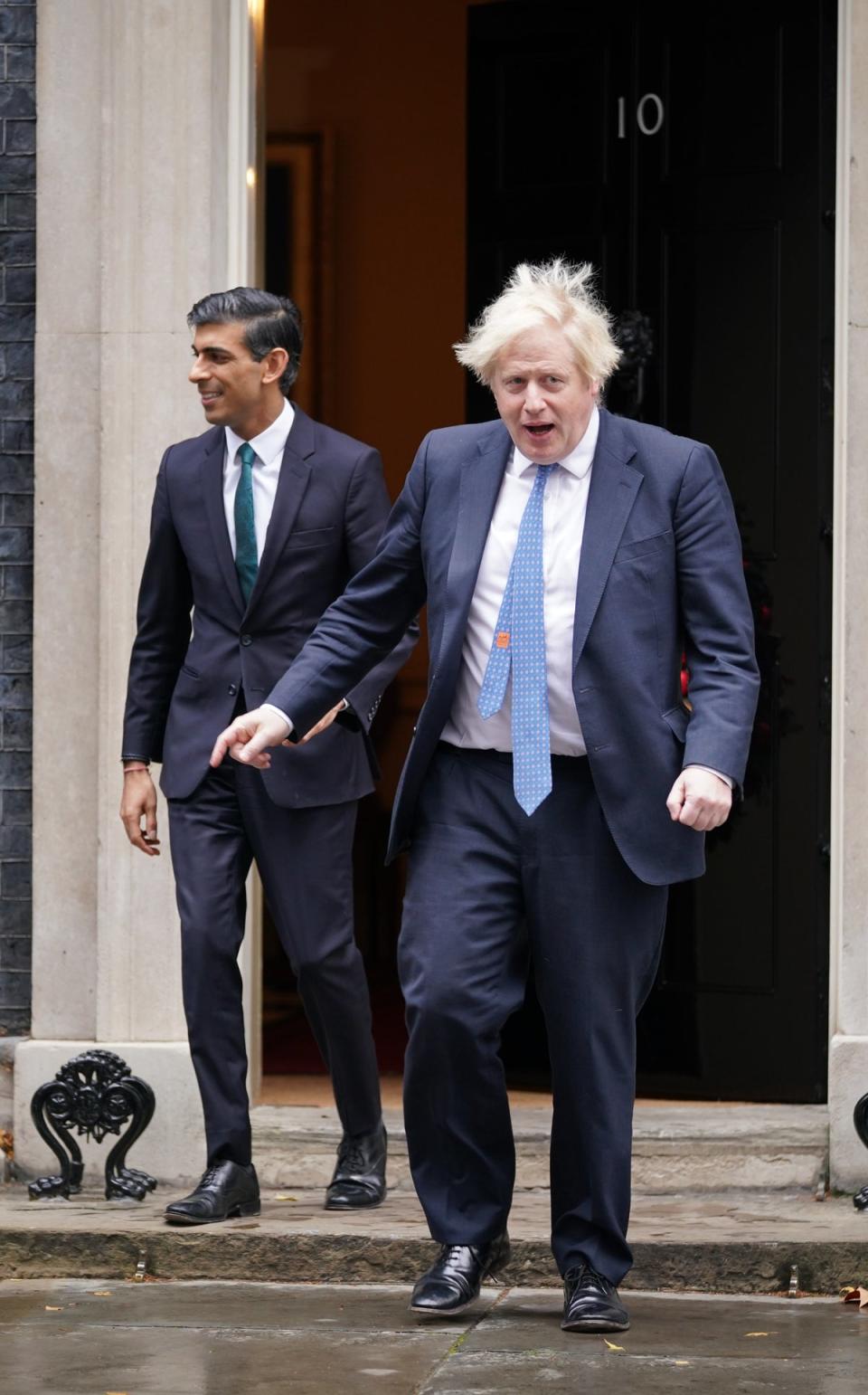Boris Johnson: Career that defied political gravity ends with spectacular fall

The 1,079th day of Boris Johnson’s premiership was a microcosm of some of the most chaotic episodes of his stint inside Number 10.
It began with continued uncertainty over his future amid further allegations about who knew what, and when, as the barrage of Conservative resignations continued unabated into a third day.
Despite presenting a typically defiant stance publicly – bullishly telling Wednesday’s powerful Commons Liaison Committee that he would not resign – and dramatically sacking Cabinet rival Michael Gove, the flow of top-level deserters could not be stemmed, with his newly appointed Chancellor and Education Secretary among those to twist the knife.
The pressure was unrelenting, his position no longer tenable. And so it was announced that Alexander Boris de Pfeffel Johnson would stand down as Prime Minister, remaining in post only until his successor is decided.
At various points during the last three years, questions have repeatedly been asked about the 58-year-old Prime Minister’s integrity.

While he survived scandals over former chief aide Dominic Cummings’ infamous Barnard Castle trip during the early days of the coronavirus pandemic, the subsequent parties in Whitehall as Britons were locked down, and the refurbishment of his Downing Street flat which prompted the resignation of his ethics adviser, the allegations against former deputy chief whip Chris Pincher proved the final straw for Mr Johnson.
It was perhaps inevitable that a scandal – rather than an election defeat – would end his Downing Street tenure after a career of sailing close to the wind.
No stranger to controversy, Mr Johnson was once sacked from a journalism job for making up a quote and was described by a biographer as having a “casual relationship with the truth”.
It was this cavalier attitude that – eventually – put paid to his time at No 10 and a job he had long coveted.
The Prime Minister once appeared unassailable and was eyeing up another 10 years in Downing Street, aiming to beat Margaret Thatcher’s 11.
But in the end he held the top job for just a fraction of that.
When Mr Johnson entered No 10 in July 2019, the backlog of scandals was already well known.
He had been accused of racism and homophobia, as well as multiple affairs, and was forced to apologise to Parliament for failing to properly declare outside earnings totalling more than £50,000 on several occasions.
It's almost as if there's a certain appeal in being a charlatan
Professor Jonathan Tonge
Jonathan Tonge, a politics professor at the University of Liverpool, said much of the baggage that came with Mr Johnson had already been “priced in” by voters at the ballot box.
Prof Tonge, an expert on elections who has tracked the popularity of politicians since 1997, told the PA news agency: “The data on Johnson is particularly interesting because, if you look at Johnson, he’s never been regarded as trustworthy.”
But he said: “Even though people don’t see him as trustworthy, they don’t see him as competent… when you look at his likability rating, Johnson, until the recent furore, consistently polled well on likability.
“So it’s almost as if there’s a certain appeal in being a charlatan.”

That apparent likability was the reason many insiders believed Mr Johnson was able to weather storms that would have ended the careers of other politicians.
Former prime minister David Cameron dubbed him a “greased piglet” who could “slip through other people’s hands where mere mortals fail”.
Mr Johnson was popular, not only with his own MPs and party members – who made him leader in a landslide internal election – but also with the public, and especially with voters who traditionally shunned the Conservatives.
This was clear as early as his election as mayor of London in 2008, as well as his retention of the powerful position four years later.

And then, in December 2019, the Tories under Mr Johnson picked up scores of traditionally Labour seats, with the charismatic leader a major factor in sealing the deal.
But it also puzzled many. What did an old Etonian, who was a member of the notorious elite dining society the Bullingdon Club while at Oxford University, have in common with voters in the North of England?
On a campaign visit to Wilton Engineering in Stockton-on-Tees in November 2019, Mr Johnson was greeted by engineers holding a “We love Boris” sign.
His promises to “get Brexit done” resonated with voters, even if they did not necessarily back the future premier.
But in the words of Lin-Manuel Miranda’s hit musical Hamilton, Mr Johnson soon found out “winning was easy, young man, governing’s harder”.
It's conditional love for Boris Johnson, highly conditional love based upon his electability, so once he ceases to be an electoral asset, then it's game over
Professor Jonathan Tonge
Prof Tonge said when the perceived support from voters dried up, Mr Johnson had nowhere left to turn without a clear caucus of MPs to back him.
“It’s conditional love for Boris Johnson, highly conditional love based upon his electability, so once he ceases to be an electoral asset, then it’s game over,” he said.
Even before he called the last election, Mr Johnson’s tenure did not run smoothly. His attempt to prorogue Parliament backfired spectacularly as the Supreme Court ruled it unlawful.
And he failed to deliver on his “do or die” commitment to take Britain out of the European Union on October 31 2019 – though he did ultimately secure a Brexit deal with Brussels, which many thought impossible.
Early on in the 2019 election campaign, his propensity to avoid scrutiny was criticised, with a refusal to take part in a set-piece interview with then-BBC heavyweight Andrew Neil, and the dispatching of Rishi Sunak to take his place in a live televised debate.
However, the seemingly Teflon-coated politician still romped to victory.

Prof Tonge said “people will tolerate loose cannon-ism” and that this was especially true after a less charismatic leader such as Mr Johnson’s predecessor, Theresa May.
Mr Johnson entered No 10 with a promise to unite the country after the wounds of Brexit, but the coronavirus pandemic meant the “levelling up” promises he had made to the country were unachievable.
Northern MPs especially – many of whom once felt they owed a debt to Mr Johnson for their jobs but also had the slimmest majorities – became unsettled as issues important to their constituents seemed less key to the Government.
A manifesto-busting rise in national insurance, a U-turn on people having to sell their homes for social care, backtracking on rail promises, and the continued threat of pandemic-related restrictions caused MPs to become rebellious.
The public appeared more forgiving, understanding the extraordinary measures needed for the pandemic and having great sympathy with the fact that Mr Johnson himself almost died from Covid.
At the end of the day, Boris will always let you down
Keith Simpson, Tory MP for Norfolk 1997-2019
But it was the abject unfairness felt over an “us and them” mentality – which came with multiple sleaze and Whitehall lockdown-busting party allegations – that hammered the final nail in Mr Johnson’s political coffin.
The Prime Minister was forced to publicly apologise to the Queen over two events held the night before the Duke of Edinburgh’s funeral, where restrictions forced the monarch to sit alone.
Mr Johnson – who as a child declared an ambition to be “world king” – ultimately paid the price for letting down Queen and country.
One former grandee, who left politics partly because he did not wish to re-run under Mr Johnson, described him as “a leader I couldn’t respect”.
Keith Simpson, who was a Conservative MP in Norfolk from 1997 to 2019, told the PA news agency: “The fact is he’s got an enormous hinterland, much of which is dodgy.
“He has a personality and a lifestyle that’s outside of the norm of many professional, Conservative politicians – and that’s electorally incredibly attractive.”
But Mr Simpson said Mr Johnson’s “fatal flaw” is that he “can’t tell the difference between truth and lie”.
He added: “At the end of the day, Boris will always let you down.”
Mr Johnson will leave Downing Street having undergone a significant transformation in his private life – marrying former Tory communications chief Carrie Symonds, with whom he has two children, following his split from second wife Marina Wheeler.

A keen statesman, Mr Johnson was quick to leap to the side of Ukrainian counterpart Volodymyr Zelensky during his Downing Street denouement by travelling to the war zone following the Russian invasion.
Ultimately, he did not emulate the length of Mrs Thatcher’s premiership.
A brief coda effectively as caretaker PM offers him the chance to try to rewrite his legacy – getting Brexit done, defeating Corbynism, and the success of the vaccine rollout among them – perhaps without the hostility engulfing him from within his own party and among the fiercest of allies during the dying days of his tumultuous reign.
After that, given the welter of scandal to have escaped from behind the famous black door in the last three years – and the rest that remains secret – the after-dinner circuit surely beckons.

 Yahoo News
Yahoo News 